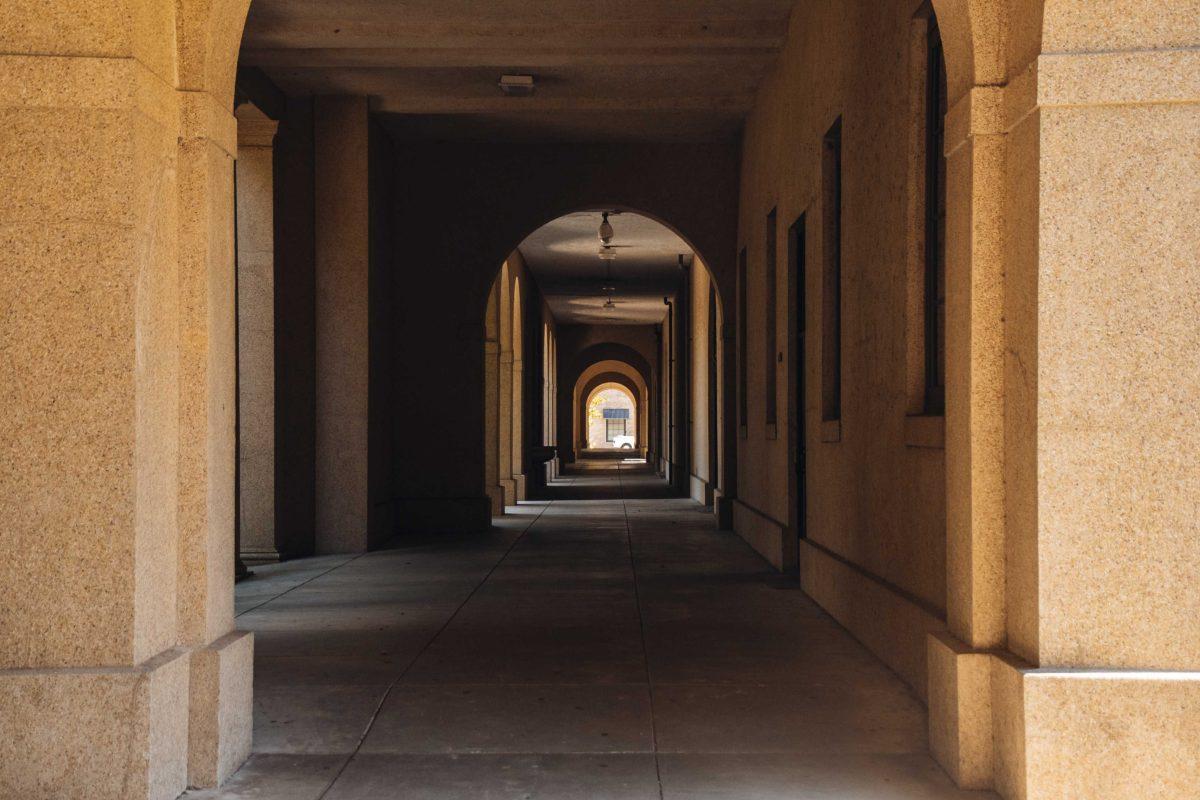
Abby Kibler
The covered walkway lies empty on Wednesday, June 17, 2020 in the Quad on LSU's campus.
The culture of hazing has not disappeared on campuses throughout the country. Students and communities are calling for action against hazing, including on LSU’s campus.
Hazing prevention at the University is not limited to Greek Life anymore; all clubs, associations, service groups, athletic groups, spirit groups and all other student organizations on college campuses will have to abide by anti-hazing mandates. All students are required to report any and all instances of hazing and must take an anti-hazing education course. If any student is caught hazing, they will be subjected to expulsion or suspension.
Max Gruver, a freshman Phi Delta Theta pledge, died in September 2017, just three years ago after attending one of the fraternity’s “Bible Studies.” LSUPD investigations confirmed that “Bible Study” was a hazing ritual where new members were forced to take “pulls” of 190-proof liquor after incorrectly answering questions about the fraternity’s history. Gruver, a targeted pledge, died the next morning with a 0.495 blood alcohol level, which is six times over the legal limit.
Since then, LSU and schools across the country have had to implement changes and face public backlash for their responses to hazing incidents.
February 2017
Sophomore Jim Piazza, a Beta Theta Pi pledge, died during a hazing ritual at Pennsylvania State University.
October 2017
After Max Gruver’s death in September 2017, four former students (Ryan Isto, Sean-Paul Gott, Patrick Forde and Matthew Naquin) were arrested for hazing charges for Gruver’s death.
May 2018
Gov. John Bel Edwards signed the “Max Gruver Act,” an anti-hazing law stating that deaths linked to hazing will be considered a felony in Louisiana. Hazings that don’t end in death will result in six months in confinement and fines costing up to $1,000. If the hazing results in injury, individuals are subject to a $2,500 fine, five years in confinement or both.
October 2019
Antonio Tsialas went to a “dirty rush” event on Oct. 24, hosted by Phi Kappa Psi at Cornell University, and went missing shortly after. By Oct. 26, his body was found at the Fall Creek gorge.
December 2019
Forde faced up to 30 days in jail for his role in Gruver’s death, the maximum penalty allowed under Louisiana law. He testified at Naquin’s negligent homicide trial and told the court he saw Naquin hand Gruver a bottle of 190-proof liquor, telling him to chug from it. Phi Delta Theta is banned from LSU until 2033.
January 2020
Naquin was sentenced with negligent homicide and hazing with five years in prison and must also complete 1,000 hours of community service. Once released, he must also face three years of probation and pay a $1,000 fine.
Sept. 13, 2020
LSU received notice that a student was hazed at an off-campus Phi Kappa Psi event. The student said he was forced to complete “strenuous workouts with no air conditioning,” at an event known as a “pizza party.” Per the report, he was also hit in the head by a baseball bat.
Oct. 19, 2020
LSUPD received word of criminal hazing conducted by Phi Kappa Psi at an off-campus location. Unlike in the Gruver case, a Jesuit graduate was brought to BR General Medical Center for severe alcohol poisoning. He is now discharged.
Oct. 20, 2020
LSU placed Phi Kappa Psi under an Interim Suspension of Activities.
Nov. 2, 2020
Terry Pat Reynolds III, a student and member of Phi Kappa Psi who was involved in the hospitalization of the freshman member, was arrested by LSUPD on the charges of felony and misdemeanor criminal hazing and failure to seek assistance.
